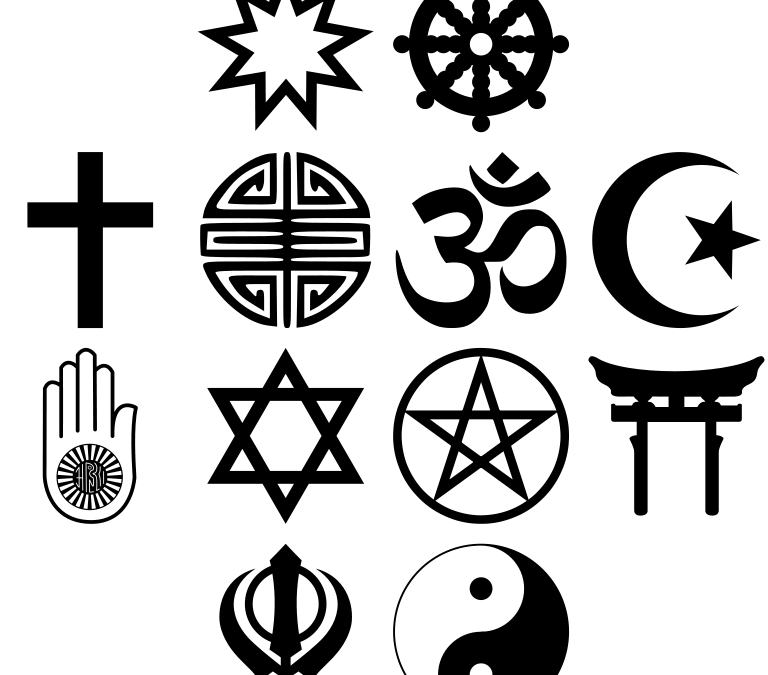World Interfaith Harmony week, celebrated the first week of February, gives us an opportunity to explore the universal principles and spiritual values upheld by the world’s great religious teachings.
Among these is the truth that good things don’t come easily.
We live in a time when so many people are seeking out fast and easy results. Surrounded by modern conveniences, it takes a lot for us to be able to step back and ask ourselves “at what cost?”
Does the convenience give us more time for the important things in life?
Or is it actually preventing us from an incredible opportunity for growth?
The truth is that a lot of opportunities for growth are not put in our lap as a neat package. Much of growth is wrapped in things that we do not want—many times, pain can be a precursor to growth; it all depends on the attitude we choose to have.
The opportunity to grow through challenges can be seen as a universal spiritual principle held by faith traditions around the world.
![]() We can see in the age-old wisdom of the sages, there is a certain caution against the easy things in life. In the Christian scriptures, Romans 5:3-5 extolls the virtues of suffering and the potential it carries in making us better through the hardships:
We can see in the age-old wisdom of the sages, there is a certain caution against the easy things in life. In the Christian scriptures, Romans 5:3-5 extolls the virtues of suffering and the potential it carries in making us better through the hardships:
We rejoice in our sufferings, knowing that suffering produces endurance, and endurance produces character, and character produces hope, and hope does not disappoint us, because God’s love has been poured into our hearts.
 Similarly, in the Dhammapada of the Buddhist tradition, we see the comparison of becoming a person of character as a process that might be like that of tempering metal:
Similarly, in the Dhammapada of the Buddhist tradition, we see the comparison of becoming a person of character as a process that might be like that of tempering metal:
By degrees, little by little, from time to time, a wise person should remove his own impurities as a smith removes the dross from silver.
 While most people are probably unfamiliar with the process of producing fine metals, it is the most intense heat that produces the best silver and gold. When we consider this, we might want to ask if the price of convenience – the automated teller machines, the opt-out button for anything and everything, the “set it and forget it” mentality – might be costing us more than we bargained for.
While most people are probably unfamiliar with the process of producing fine metals, it is the most intense heat that produces the best silver and gold. When we consider this, we might want to ask if the price of convenience – the automated teller machines, the opt-out button for anything and everything, the “set it and forget it” mentality – might be costing us more than we bargained for.
In fact, the Quran of the Islamic faith extolls the beauty that awaits one behind the pain of growth in that it brings one closer to God:
O man! Verily you are ever toiling on towards your Lord – painfully toiling – but you shall meet Him…
 And in the Jewish Talmud we see the benefits of the struggle that comes with the inconvenience of something that we moderns might deem inconvenient or incompatible with our daily, busy lifestyle: the continual effort to refine one’s character:
And in the Jewish Talmud we see the benefits of the struggle that comes with the inconvenience of something that we moderns might deem inconvenient or incompatible with our daily, busy lifestyle: the continual effort to refine one’s character:
The study of Torah leads to precision, precision to zeal, zeal to cleanliness, cleanliness to restraint, restraint to purity, purity to holiness, holiness to meekness, meekness to fear of sin, fear of sin to saintliness, saintliness to the holy spirit, and the holy spirit to life eternal.
 From Hinduism, there is the caution against turning a blind eye from the challenges that life will inevitably come our way. By accepting my own personal responsibility to make the tough choices in life to grow and become the people we are meant to be, we become our best friend instead of our own worst enemy:
From Hinduism, there is the caution against turning a blind eye from the challenges that life will inevitably come our way. By accepting my own personal responsibility to make the tough choices in life to grow and become the people we are meant to be, we become our best friend instead of our own worst enemy:
Man should discover his own reality and not thwart himself.
For he has his self as his only friend, or as his only enemy.
A person has the self as a friend
When he conquered himself
but if he rejects his own reality,
the self will war against him. Bhagavad Gita 6.5-6 (Hinduism)
 And last but not least, Confucius reflected on the process of learning through his own life as one of training in order to become truly free:
And last but not least, Confucius reflected on the process of learning through his own life as one of training in order to become truly free:
The Master said, “At fifteen I set my heart upon learning. At thirty I had planted my feet upon firm ground. At forty, I no longer suffered from perplexities. At fifty, I knew what were the biddings of Heaven. At sixty, I heard them with a docile ear. At seventy, I could follow the dictates of my own heart; for what I desired no longer overstepped the boundaries of right.”
All of these passages from the different wisdom traditions point to this truth about our human potential as rooted in the Divine. From this, we can deduce that the pivotal role personal growth – of our hearts, character, maturity, habits whatever pain that might come with it – helps us in fulfilling our divine potential.
So, in the many different choices, decisions that we come up against in our everyday lives, let’s begin to acquire the habit of asking: which are the choices that make us become better, help us to bring out the best in ourselves and which are the easy outs?

